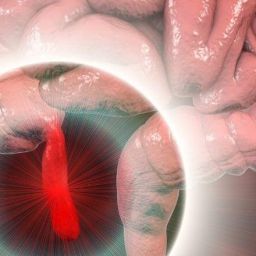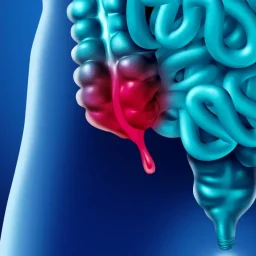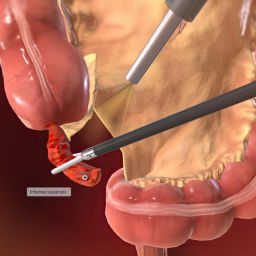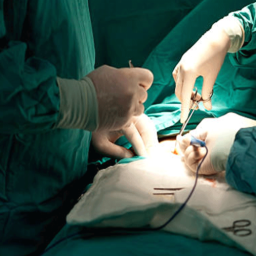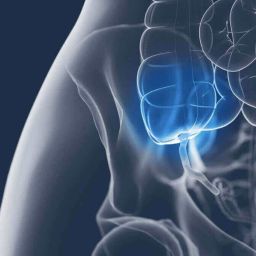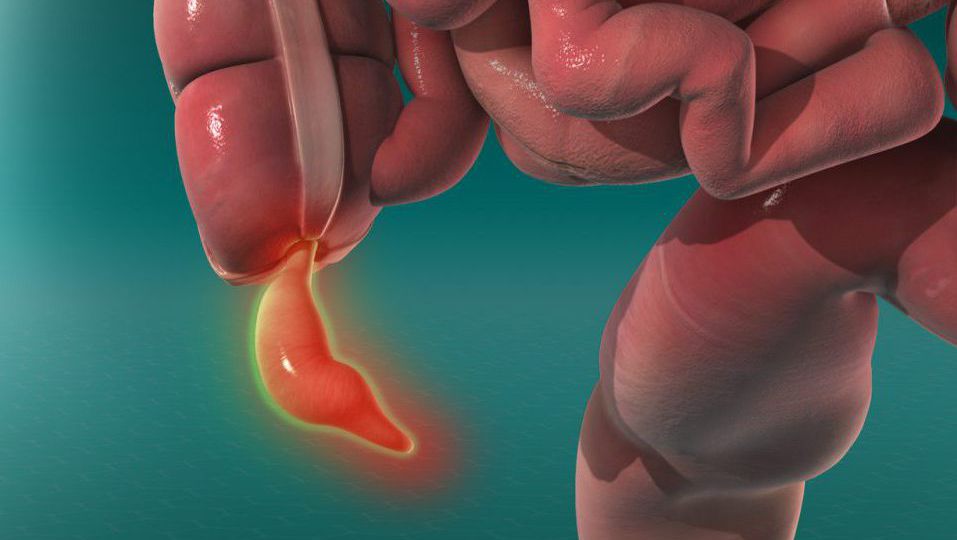
1. Emotional and Psychological Impact of Appendectomy
Undergoing surgery, even a relatively routine procedure like an appendectomy, can have a substantial impact on a patient’s emotional well-being. Several factors contribute to these psychological effects, including the sudden onset of illness, the stress of surgery, and the recovery period.
a. Anxiety and Stress
One of the most common emotional responses to surgery is anxiety. Patients may feel anxious about the surgery itself, the potential risks, and the outcome. They may worry about anesthesia, post-surgical complications, or the uncertainty of how they will feel during recovery. For many people, the fear of the unknown can be overwhelming.
The stress of hospitalization, being away from family and routine activities, and the general disruption caused by a health issue can also increase anxiety levels. In addition, the sudden nature of appendicitis, which is often diagnosed as an emergency, can amplify feelings of uncertainty and fear.
b. Depression and Feelings of Vulnerability

For some patients, appendectomy can bring about depressive feelings. The recovery period can be physically exhausting, and many patients experience a sense of helplessness or frustration due to limited mobility or the inability to perform normal daily activities. This feeling of dependence on others for basic tasks can trigger feelings of vulnerability or a loss of control, which may contribute to mild or moderate depression.
In addition to these factors, some patients may feel isolated during the recovery process. Social isolation, especially if the patient is unable to return to work or engage in social activities, can worsen feelings of depression. The discomfort associated with post-operative recovery, along with the uncertainty about the future, may also contribute to a negative emotional state.
c. Post-Traumatic Stress Disorder (PTSD)
While rare, some patients may experience symptoms of post-traumatic stress disorder (PTSD following appendectomy, particularly if the surgery was complicated or if the patient experienced significant physical distress or pain. PTSD can result from a traumatic experience such as a medical emergency, and it is more likely to occur if the patient was admitted for appendicitis in a particularly urgent or life-threatening situation.
Symptoms of PTSD can include nightmares, flashbacks, increased irritability, hypervigilance, and avoidance of situations that remind the patient of the trauma. Though PTSD is more commonly associated with more severe or life-threatening conditions, it can also develop after an emergency surgery like appendectomy if the patient felt unsafe or terrified during the experience.
2. Common Psychological Challenges Post-Appendectomy
The emotional recovery process after an appendectomy varies from person to person. However, there are several psychological challenges that are frequently reported by patients recovering from surgery. These challenges may be short-term or long-term and can affect a patient’s overall quality of life.
a. Fear of Complications and Recurrence
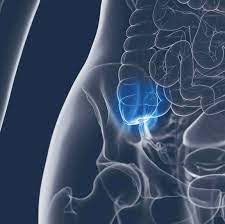
Even after a successful appendectomy, some patients may experience ongoing fear or anxiety regarding complications. They may worry about infections, the possibility of the surgery site reopening, or whether their body is healing properly. These concerns can linger for weeks or even months after the procedure.
Additionally, patients may be fearful of the recurrence of appendicitis, even though it is rare after an appendectomy. This fear can prevent patients from fully enjoying the recovery process and returning to their usual activities. Persistent worry about their health can hinder emotional healing.
b. Body Image Concerns
Although appendectomy is generally a minimally invasive surgery, patients may still experience body image concerns. The physical scars from the surgery can cause feelings of self-consciousness or insecurity, especially if they are visible. For some individuals, body image can be an important part of their identity, and any change to that can lead to psychological distress.
In addition to the appearance of scars, some patients may struggle with the physical changes to their body after surgery. They may feel weaker or less physically capable than they did before the surgery, leading to feelings of frustration or low self-esteem.
c. Disruption to Daily Life and Social Activities
Appendectomy often requires a period of rest and recovery. For many patients, this can result in a temporary loss of independence and disruption to their daily activities. This can cause emotional distress, especially if the patient is unable to return to work, care for family members, or engage in social activities.
The isolation that often accompanies this period of physical recovery can exacerbate feelings of loneliness or sadness. Some patients may struggle to cope with the loss of their usual routine and feel disconnected from their support networks.
3. Psychological Support During Appendectomy Recovery
Providing psychological support during the recovery period after an appendectomy is essential to ensuring that patients heal emotionally as well as physically. Addressing the psychological challenges of recovery can improve the patient’s quality of life and help to speed up the overall healing process.

a. Providing Education and Reassurance
One of the most effective ways to reduce anxiety and stress after appendectomy is through education. Patients who are well-informed about the surgery, the recovery process, and what to expect afterward tend to feel more in control and less fearful of complications.
Healthcare providers should offer clear, concise information about what will happen during surgery, the typical recovery timeline, and how to monitor for potential complications. Reassurance from medical staff can go a long way in reducing anxiety and increasing the patient’s confidence in their recovery.
b. Social and Emotional Support
Social support is crucial in helping patients manage the emotional challenges that arise during recovery. Patients should be encouraged to lean on family members, friends, or support groups to help them through their recovery. Emotional support from loved ones can alleviate feelings of isolation and loneliness, which are common during the recovery process.
For patients who are experiencing more significant emotional distress, professional counseling or therapy may be beneficial. Psychologists or therapists specializing in post-surgical recovery can provide techniques to help patients manage anxiety, depression, or PTSD, if necessary.
c. Addressing Body Image Issues
For patients who experience concerns about their body image following appendectomy, it is important for healthcare providers to offer support. This could involve discussions about the expected healing process, reassurance that scars will fade over time, or providing information on scar treatment options. If body image concerns persist, referral to a counselor or support group may be helpful in managing these feelings.
d. Encouraging Gradual Return to Normal Activities
Encouraging patients to gradually return to normal activities can help restore a sense of normalcy and reduce feelings of frustration. For many people, physical recovery is closely tied to emotional recovery. Resuming regular routines and activities, when appropriate, can give patients a sense of accomplishment and improve their overall well-being.
Physical rehabilitation or gentle exercise, once cleared by the healthcare provider, can also help patients regain strength and confidence in their body, which can positively impact their emotional state.
e. Cognitive Behavioral Therapy (CBT)
Cognitive Behavioral Therapy (CBT) is a widely used therapeutic approach for patients who experience emotional distress following surgery. CBT focuses on helping individuals identify and challenge negative thought patterns that may be contributing to feelings of anxiety, depression, or stress.
Through CBT, patients can learn coping strategies to manage their emotions, address irrational fears, and develop a more positive outlook on their recovery. This can be particularly helpful for patients who experience long-lasting emotional symptoms after appendectomy.
f. Mindfulness and Relaxation Techniques
Mindfulness practices and relaxation techniques, such as deep breathing exercises, meditation, and yoga, can help patients manage stress and improve their emotional well-being during recovery. These techniques have been shown to reduce anxiety, promote relaxation, and improve overall mental health.
Healthcare providers can offer patients resources or recommend mindfulness programs that can aid in emotional healing. Additionally, hospitals or clinics may offer support groups for patients recovering from surgery, where they can share experiences and learn coping strategies together.
The emotional and psychological impact of undergoing an appendectomy can be significant, but it is often overlooked in the focus on physical recovery. Patients may experience anxiety, depression, fear of complications, body image concerns, and disruptions to their daily lives. These psychological effects can hinder the overall healing process and affect the patient’s quality of life.
However, with appropriate psychological support, patients can manage these challenges and experience a smoother emotional recovery. Education, reassurance, social support, counseling, and therapeutic techniques such as CBT and mindfulness can help address emotional distress and promote emotional healing.
Healthcare providers must recognize the importance of addressing both the physical and psychological aspects of recovery to ensure that patients fully heal and regain their health and well-being after an appendectomy.


